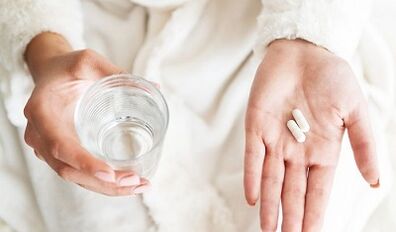When they take drugs, people often face the problem: how long after antibiotics you can drink alcohol.It is difficult to say how long it is to completely remove medicines from the body - no doctor will definitely answer this question, since the action of all antibiotics is different.In addition, there are diseases when the patient is prescribed not only antibiotics but also a special diet.In this case, alcohol is prohibited.
Drug

Antibiotics - products from the life of microorganisms (these are most often mushrooms and their synthetic derivatives).They are used to treat infections caused by bacteria.They are all produced in both capsules and tablets because they are very comfortable.
However, for all antibiotics, there are general rules for adoption:
- Each medicine can only be prescribed by a doctor, depending on the severity of the disease and the characteristics of the patient's body.
- Antibiotics are not used as a treatment of viral diseases.
- The result of the action of each antibiotic is considered during the first three days - if the drug helps, it is not recommended to interrupt treatment.If the symptoms continue to progress, then you should consult a doctor again.
- The course of treatment does not stop if nausea or unpleasant taste in the mouth occurs.
- You cannot control the dose that your doctor has prescribed - too small doses of antibiotics are dangerous to the human body.
Important!It must be remembered that self -measurement is always dangerous to the body.
The time it takes to remove the antibiotic from the body depends on many factors.Each of the drugs has its own characteristics, but most are separated from the body with urine through the kidneys or (if the dose is small) in the form of bile through the intestine.Very small doses can be shown in other ways: through sweat, fatty, salivary glands or phlegm.
If you need to understand the ways to remove a particular medicine, you should read the instructions.For each antibiotic, this information is indicated in pharmacokinetics.

Some medicines can be excreted after 6-12 hours, but there are those that slow down in the body for 1-2 weeks.
In addition, it should be borne in mind that muscle tissue quickly removes the antibiotic after it is fat and only then bone.
After the standard and the most important-successful course of antibiotics, alcohol cannot be drunk for 3-5 days.
But there are exceptions to chronic diseases when the course of treatment is performed repeatedly.In this case, abstinence from alcohol costs 2-4 weeks.
Alcohol during treatment
If a person is prescribed an antibiotic course, then it is strictly forbidden to drink alcohol.Doctors note that more effective treatment in those people who do not drink alcohol, neither during the disease or after.
- The most important reasons are the interaction of alcohol molecules and antibiotics.In this situation, toxic substances can be released.
- Against the background of alcohol, an antibiotic becomes less effective or useless at all.
- Hepatotoxic alcoholic antibiotics (affecting the liver).If you use them at the same time, the liver load is enhanced.
When you can drink alcohol after taking antibiotics and how best it is to ask your doctor to avoid unpleasant consequences.
In any case, there is a small group of antibiotics that are allowed alcohol.These include:
- antifungal;
- penicillins;
- Helioomycin;
- Ansomycin;
- glycopeptides.
The rate of removal of funds
One feels the toxic effect of antibiotics long after the course of treatment.
As mentioned earlier, the greater part of it is shown in urine.Each medicine is absorbed and besieged in the body for a different period of time.
If you have such an opportunity, it is better not to consume alcohol.
Immunity, fragile after illness, is not always ready for the toxic effects of ethyl alcohol.
What affects her
The main factor that affects the rate of excretion of the drug is its chemical composition.But the path to the introduction of an antibiotic is also important.The path of a parent (surrounding the digestive tract) acts more efficiently and faster (withdrawn from 16-24 hours), but the specialist should be injected.At home is the entral path (through the gastrointestinal tract) - tablets and capsules can be taken at home alone.
The time it takes to remove the antibiotic from the body may depend on age - in people of elderly, this happens more slowly.Also, excretion can inhibit the function of the kidneys, liver, or genital.The toxins are released faster with an abundant drink of liquid or fermented dairy products.
The consequences of joint intake

Often, people, without hesitation, drink alcohol with antibiotics and claim that the annotation does not show how long you cannot drink alcohol and whether there is a ban on intake as a whole.But it must be remembered that pharmaceutical companies produce antibiotics for treatment rather than combining with alcohol, so they will not check such reactions.
No doctor can predict the correct reaction in your body and how it affects the course of the disease.The use of alcohol during antibiotics can have serious consequences.Think of some of them:
- Disruption of liver function.In this case, the liver may not remove harmful products, but absorbs all toxins in its cells.
- Severe allergic reaction (Quinke swelling, anaphylactic shock).
- There may be intoxication of the body (nausea, vomiting, headache, cramps, abdominal pain).
- Heart problems may occur, stroke or myocardial infarction will develop.
- Increased or decreased blood pressure (blood pressure).
It should be remembered that with a combination of drugs with alcohol, ethanol is not divided.Hence the consequences: most of the harmful substances of alcoholic beverages will be accumulated in the organs and tissues of a person.
The most dangerous "cocktails"
Many antibiotics are not compatible with any alcohol.For example:
- Fruitorchinolons, mixing with alcohol, has an adverse effect on the nervous system and can lead to coma.
- Tetracyclics slow down for a long time in the body, can destroy some liver cells, and therefore alcohol intake is possible for three days.
- Aminoglycosides can be the cause of ear and kidney complications (alcohol is possible after 2 weeks).
- The nervous system and the liver are damaged by lincosamids (alcohol is possible after 4 days).
- Macrolides can cause hepatic cirrhosis (alcohol is possible after 4 days).
All anti -tb drugs cause hepatitis, in which case all alcohol is prohibited.
First aid
The first action is a call for an ambulance.Determine how long it has been after intoxication and be sure to save the remnants of the substances that have caused poisoning - this will help the doctor.
If the victim is conscious, he should drink a large amount of water and then cause vomiting by irritating the back wall of the larynx.After washing your stomach, you should give the victim every sorbent (such as active carbon).
Place the patient in a comfortable horizontal position, monitor the breathing and heart rate.Wait for the ambulance to arrive.
Result
Antibiotics are a very serious medicine.A person taking antibiotics should clearly follow the instructions that are attached to these drugs.Not all antibiotics can be combined with alcohol, in the best case the medicine will simply not help, and in the most case it can cause death.























